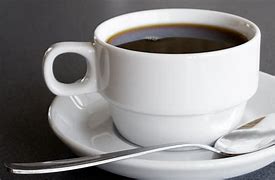How Much Caffeine Is Your Cup of Coffee? By Pierre Mouchette | Bits-n-Pieces Many start the day with an 8 oz cup of coffee (95 to 165 mg caffeine) or tea (9.1 mg caffeine). Caffeine is a stimulant that increases the nervous system's activity and can help boost energy levels. About 80% of US adults take some form of caffeine daily, and it is the most widely used stimulant in the world.
Caffeine is found naturally in various plant foods, including cocoa beans, tea leaves, and coffee beans. It is also in many foods and beverages and even added to certain medications. So how much caffeine is in the drinks you are having? What is caffeine? Caffeine is a bitter substance that naturally occurs in about 60 plant species, including:
How much caffeine is in coffee, tea, and more? The caffeine content of coffee and tea will vary, as brewing time and processing can affect the caffeine content. For example, the longer you brew coffee and tea, the more caffeine is extracted from the beans and leaves. Are there any medications that have caffeine? Yes, certain medications have caffeine. It can be helpful to know what they are so you do not mix them with other high-caffeine foods or drinks. These medications, most of which are for headache relief, include:
What does caffeine do to your body? When drinking a cup of coffee, you might notice that you feel agitated, your heart beats faster, your thoughts rush, and your palms sweat. It is because caffeine stimulates your central nervous system, which helps you feel more awake and energized. The effects of caffeine can kick in within 5 to 30 minutes after you have consumed it. Within an hour after eating or drinking caffeine, it reaches peak levels in your blood. The effects of caffeine can last for 4 to 6 hours after consumption or even longer, depending on the individual. What are the symptoms of having too much caffeine? Having too much caffeine can cause:
What is an acceptable amount of caffeine to consume daily? The FDA considers 400 mg of caffeine safe for healthy adults to consume daily. For reference, that is about 4 cups of coffee (the average cup of drip coffee has around 95 mg of caffeine). Remember that every individual reacts to caffeine differently depending on how they metabolize it, so some may be more susceptible to the side effects of caffeine than others. Pregnant women should limit their caffeine intake to about 200 mg per day, according to the American College of Obstetricians and Gynecologists. Speaking with your healthcare provider about caffeine intake during pregnancy is best. For children under age 12, pediatricians recommend avoiding caffeine entirely.
0 Comments
Your comment will be posted after it is approved.
Leave a Reply. |
Archives
May 2024
|
